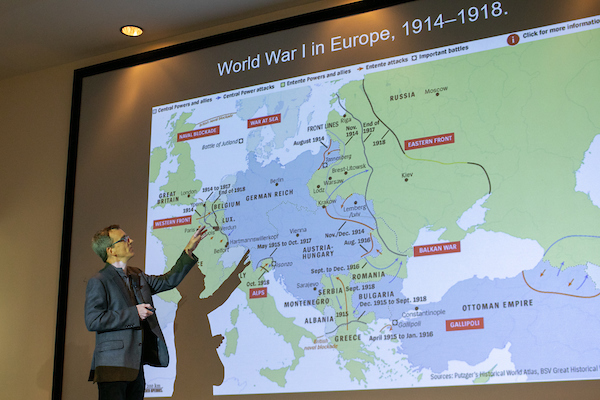History Education
Learn More About History Education
Admission Requirements
Students may initially declare an "-Interest" based major in this subject, but must still meet additional requirements to be formally accepted into the degree program.
click here to learn more about teacher education admission requirementsSample Classes
-
HIED 4550: Methods of History Education
This course is an examination and application of curriculum issues, learning theories, teaching strategies, instructional materials, and assessment procedures for teaching secondary social sciences in the multicultural and diverse classrooms of today. Emphasis is on those practices suggested by research in secondary social science education and encouraged by our accrediting agencies.
-
HIST 3100: Historical Methods
This course introduces students to historical inquiry as a conversation about the past. It surveys methods, concepts, and frameworks relevant to the discipline. Students engage in the close reading of scholarly historical work, learn and practice a variety of research methods, and analyze historical sources. Students cultivate good scholarly practices and habits of mind that will benefit them in future courses. Students should take this course during the second semester of the sophomore year.
-
HIST 3304: History of Georgia
A consideration of Georgia’s political, economic, social, and cultural development from the colonial period to the present. Topics include the cultures of indigenous peoples, the Spanish in Georgia, the founding of a British colony, the Revolution, Indian removal, antebellum society, the Civil War, Reconstruction, the New South era, the rise and decline of the cotton economy, race relations, and post-World War II prosperity and problems.
-
HIST 4488: Approaches to World History
The course examines approaches to world history as a field of study, including important debates and controversies in the tradition, along with best practices in teaching world history. The course includes a consideration of recent developments on topics such as modernization and globalization and their significance in world history, philosophical perspectives on the importance of world history in today’s secondary classrooms, world history lesson planning and teaching, and a middle school field component.












